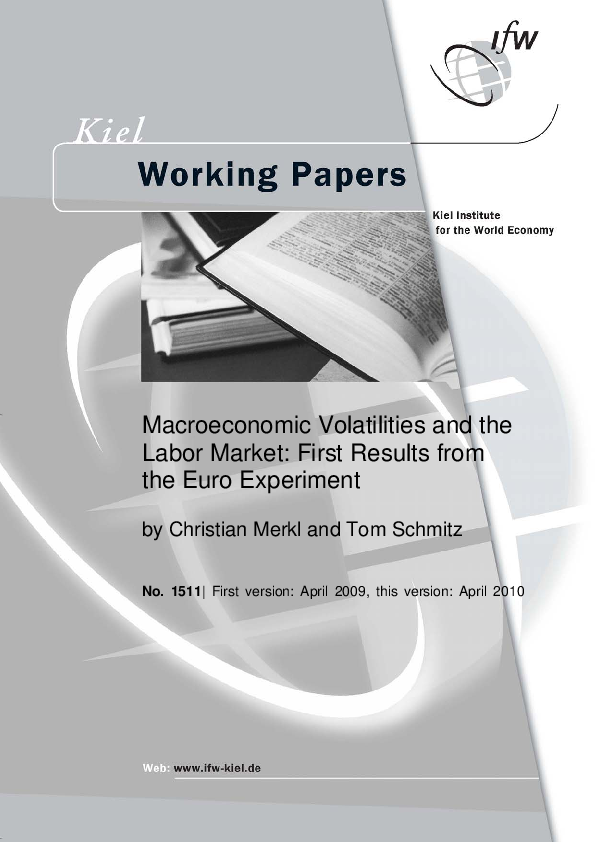Arbeitspapier
Macroeconomic Volatilities and the Labor Market: First Results from the Euro Experiment
Autoren
Erscheinungsdatum
JEL Classification
Schlagworte
This paper analyzes the effects of different labor market institutions on inflation and output volatility. The eurozone offers an unprecedented experiment for this exercise: since 1999, no national monetary policies have been implemented that could account for volatility differences across member states, but labor market characteristics have remained very diverse. We use a New Keynesian model with unemployment to predict the effects of different labor market institutions on macroeconomic volatilities. In our subsequent empirical estimations, we find that higher labor turnover costs have a statistically significant negative effect on output volatility, while replacement rates have a positive effect, both of which are in line with theory. Real wage rigidities do not seem to play much of a role. This result is in line with our employed labor market model, but stands in stark contrast to the search and matching model. While labor market institutions have a large effect on output volatility, they do not seem to have much of an effect on inflation volatility. Our estimations indicate that the latter is driven instead to a certain extent by differences in government spending volatility.






